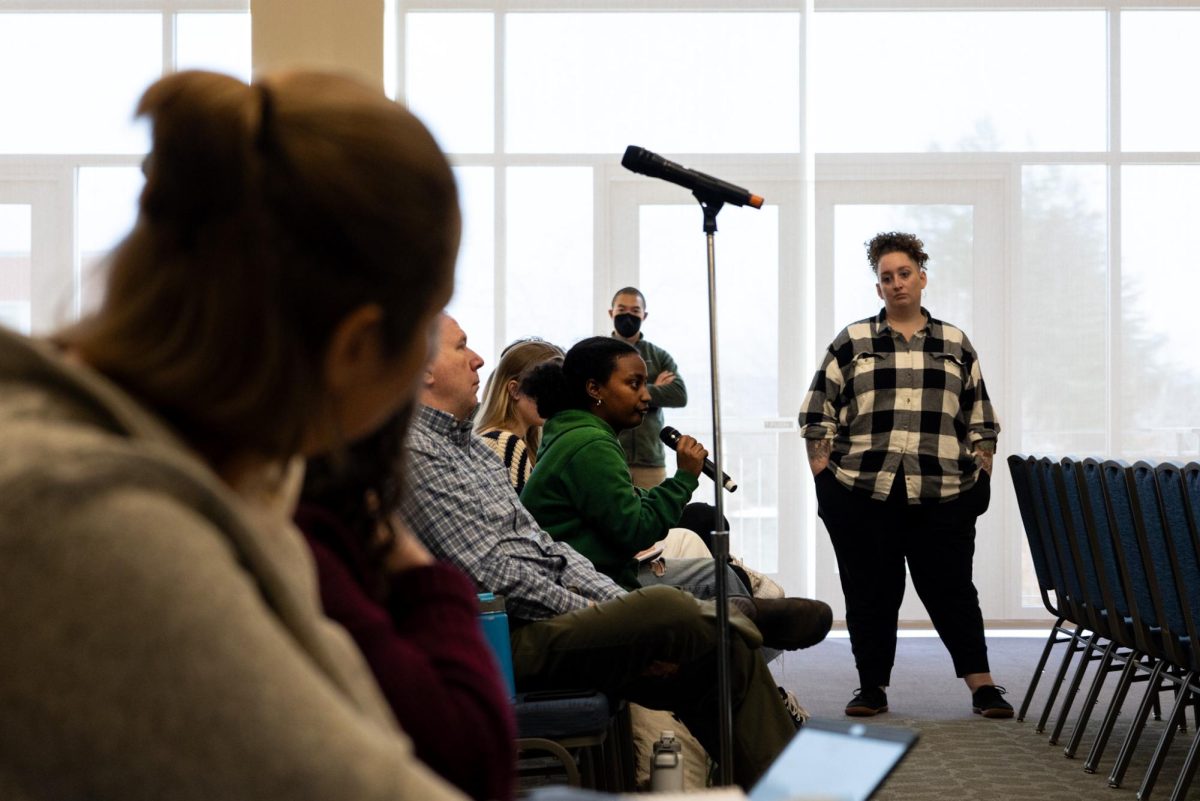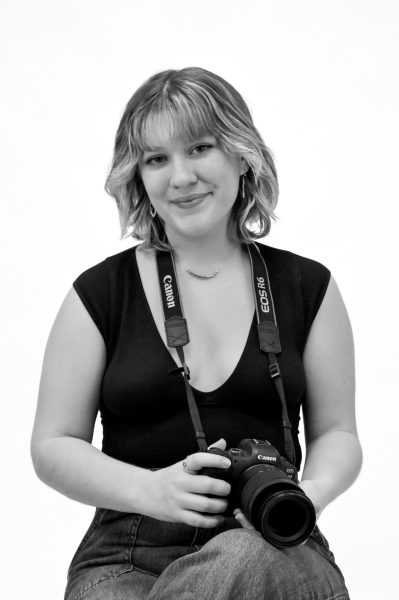The University hosted a public forum on Nov. 28 to address campus and community safety, wrote Michael Schirling, UVM chief safety and compliance officer, in a Nov. 27 email.
The forum was held in the wake of the shooting of three Palestinian American students on North Prospect Street in Burlington on Saturday, Nov. 25, according to the email.
“University leaders are particularly aware that our Arab, Muslim, and Palestinian community members feel specifically targeted at this time,” Schirling’s email stated. “There is no room for hate at UVM and we ask everyone to come together in helping to keep our campus conducive to the learning, working, and recreation that are hallmarks of the UVM experience.”
Schirling said at the forum that the Division of Safety and Compliance uses an array of methods in its approach to security on campus, including campus safety initiatives, the Unified Campus Reporting Portal and the CATSafe app.
Schirling said that the chances of a copycat event or related incident to the shooting are low and that he encourages the University community to be vigilant and utilize the measures provided by the Division of Safety and Compliance.
“Be vigilant and mindful of your surroundings,” he said. “We would tell you that anytime. Just bring that up one extra notch this week.”
One student who attended the forum said that they were disappointed in UVM’s Nov. 25 statement following the shooting because it did not call the incident a hate crime.
“We have an issue at this University of being vague for the purpose of protecting our image,” they said. “I don’t think there’s anything wrong with calling this what this is.”
While the investigation is ongoing, the attack is being probed as a possible hate crime, according to a Nov. 28 Associated Press article.
“Local news outlets reported they are men of Palestinian descent,” the University stated on Nov. 25. “No motive is known.”
Schirling said that the University’s statement did not refer to the shooting as a hate crime because it could interfere with the ongoing investigation of the shooting.
“If the information stating something about it being a hate crime happens before the offender’s even been identified or within the first 24 hours of a case, it could compromise that prosecution,” he said. “We have to consider that we have a loud voice on the hill and how that impacts the progress of an investigation.”
One attendee, who did not give their name, said that they felt that the Nov. 25 shooting highlighted the issue of security for Arab students on campus.
“Saturday’s shootings showed us that safety and security is a major issue for our community, for all students[…]but in particular, for students of color, Arab students, Muslim students, Palestinian students,” they said.
The attendee said they had concerns with how the University has handled safety and security issues surrounding Palestine on campus.
“I am coming from a country where […] safety and security [are] used to justify any kind of arbitrary decision,” he said. “[That] is exactly what happened earlier this semester when UVM canceled Mohammed El-Kurd’s talk without any kind of substantiation, without any kind of justification.”
A planned guest lecture by Mohammed El-Kurd on the subject of the misrepresentation of Palestinians in the US was canceled by UVM, according to a Nov. 6 Cynic article.
The University cited safety and security concerns as the reason for rescinding El-Kurd’s venue on campus, according to an Oct. 21 email from the UVM Division of Safety and Compliance.
The public forum attendee said that he felt the El-Kurd event’s cancellation was an instance of the University’s silencing of Arab students.
“Those people whose voices are silenced happen to be Arabs, Muslims and Palestinian students as well, too,” the attendee said. “They did not feel safe in their own institution where they’re supposed to be exercising their academic freedom.”
Schirling said that the University’s decision to cancel the lecture was made with information from the Vermont Intelligence Center, and that such safety decisions are often made by weighing risk factors against the benefits.
“I can’t get into the specific intelligence around that specific risk assessment because what it would do is pierce the veil, the necessary compartmentalization of that information,” he said.
Schirling said that the intelligence briefings were shared with representatives from the Faculty Senate, Staff Council, Student Government Association and the Graduate Student Senate.










